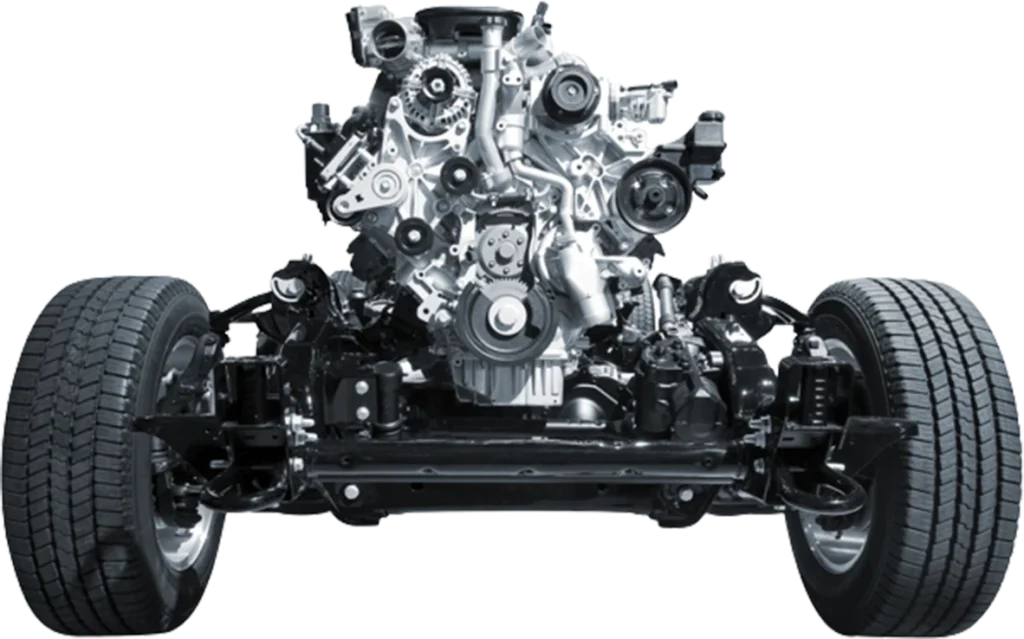Tune-Ups & Preventive Maintenance
Our Tune-Ups & Preventive Maintenance services are meticulously crafted to maintain your vehicle at its peak, ensuring a consistently smooth, efficient, and dependable performance. By embracing regular care, you not only safeguard your car’s longevity but also shield your valuable investment, ultimately diminishing the likelihood of premature replacements.
Expert Tune-Ups services
Your vehicle, like any finely-tuned machine, requires regular attention and maintenance to perform at its best. At AutoHub Plus, we offer comprehensive Tune-Up services designed to keep your vehicle running smoothly and efficiently. Whether you’re driving a daily commuter or a high-performance vehicle, our expert technicians have the skills and knowledge to ensure your vehicle operates at peak performance.


Let Your
Engine Run Clean
Your vehicle’s engine is a marvel of engineering, but to keep it performing at its best, it needs clean and filtered air and fluids. Filters play a crucial role in ensuring that your engine operates efficiently and remains free from harmful contaminants. At AutoHub Plus, we understand the importance of these often-overlooked components and offer top-quality filter replacement services to keep your engine running clean and strong.
Our Tune Up Services
Ignition Wires
Read More
Ignition wires, also known as spark plug wires, transmit high-voltage electricity from the ignition coil to the spark plugs, creating the spark needed to ignite the air-fuel mixture in the engine cylinders.
Ignition Coils
Read More
Ignition coils are responsible for generating the high voltage needed to create sparks in the spark plugs. They play a crucial role in the ignition system's efficiency, and malfunctioning coils can result in misfires and reduced engine power.
Engine Air Filter
Read More
The engine air filter prevents dust, dirt, and debris from entering the engine's combustion chambers. A clean air filter ensures that the engine receives filtered air, which is essential for engine longevity.
Cabin Air Filter
Read More
The oil filter is a critical component of the lubrication system. It removes contaminants and debris from the engine oil, ensuring that the oil remains clean and effective in lubricating engine components.
Oil Filter
Read More
The oil filter is a critical component of the lubrication system. It removes contaminants and debris from the engine oil, ensuring that the oil remains clean and effective in lubricating engine components. Regular oil filter changes are essential for engine health.
Fuel Filter
Read More
The fuel filter screens out impurities and contaminants from the fuel before it reaches the engine's fuel injection system. Replacing the fuel filter regularly helps maintain proper fuel delivery and engine performance.
PCV Valve
Read More
The PCV valve controls the flow of gasses from the engine's crankcase to the intake manifold. It helps regulate engine pressure and prevents the buildup of harmful fumes and moisture in the crankcase.
Serpentine Belt
Read More
The serpentine belt powers various engine components, such as the alternator, power steering pump, and air conditioning compressor. Regular inspection and replacement of the serpentine belt are crucial to prevent unexpected breakdowns.
Belt Tensioner
Read More
The belt tensioner maintains the proper tension on the serpentine belt. A functioning tensioner ensures that the belt operates smoothly and efficiently.
Timing Belt
Read More
In engines with timing belts, this component synchronizes the rotation of the crankshaft and camshaft. A worn or damaged timing belt can lead to engine damage, so regular replacement is essential.
Hoses
Read More
Various hoses in the engine bay transport fluids, such as coolant and power steering fluid. Inspecting hoses for wear, cracks, or leaks is vital to prevent fluid loss and engine overheating.
Motor Oil
Read More
Motor oil provides lubrication to engine components, reducing friction and heat generation. Regular oil changes with the right type of oil are essential for engine health and longevity.
Coolant
Read More
Coolant, also known as antifreeze, regulates engine temperature by dissipating heat. Proper coolant levels and quality are crucial to prevent overheating and engine damage.
Brake Fluid
Read More
Brake fluid transmits hydraulic pressure to the brake calipers or wheel cylinders, allowing effective braking. Regular checks and maintenance of brake fluid are vital for safe braking performance.
Power Steering Fluid
Read More
Power steering fluid assists in turning the steering wheel with ease. Maintaining the correct level and quality of power steering fluid ensures responsive steering.
Auxiliary
Systems in Check
While your vehicle’s engine and transmission get much of the attention, it’s essential not to overlook the importance of auxiliary systems. These support systems work quietly in the background, ensuring your vehicle operates smoothly and efficiently. At AutoHub Plus, we understand that a well-maintained vehicle goes beyond the basics, which is why we offer comprehensive services to keep your auxiliary systems in check.


Right Fluids for the Right Purpose
In the world of automobiles, the saying “the devil is in the details” couldn’t be truer. The right fluids in your vehicle play a crucial role in ensuring optimal performance, safety, and longevity. At AutoHub Plus, we understand the significance of using the correct fluids, and our commitment to excellence means we provide your vehicle with the precise fluids it needs for each specific purpose.
What our Client Says
Auto Hub's tune-up and preventive maintenance services have earned my trust. Their thorough inspections and timely maintenance have extended the life of my car and improved its fuel efficiency. I can't thank Auto Hub enough for their dedication to keeping my car running its best.
Michael
I've been relying on Auto Hub for tune-ups and preventive maintenance for years, and they've consistently exceeded my expectations. Their attention to detail and dedication to proactive car care is commendable. Thanks to Auto Hub, my car runs smoothly and efficiently.
Sarah
Auto Hub's commitment to preventive maintenance is evident in every service they provide. Their skilled technicians not only keep my car in top condition but also provide valuable tips for maintaining it between visits. Auto Hub's proactive approach to car care sets them apart.
Emily F.A.Q
Frequently Asked Questions
A vehicle tune-up is a comprehensive maintenance service that involves inspecting and adjusting various components of your vehicle, such as the engine, spark plugs, fuel system, and ignition system. It’s necessary to maintain optimal performance, fuel efficiency, and reliability.
The frequency of tune-ups can vary depending on your vehicle’s make, model, age, and driving conditions. In general, a standard tune-up is recommended every 30,000 to 60,000 miles or as outlined in your vehicle’s owner’s manual.
Common signs that your vehicle may need a tune-up include poor fuel efficiency, rough idling, reduced power, difficulty starting, and a check engine light illuminated on the dashboard. If you notice any of these symptoms, it’s time for a tune-up.
A typical vehicle tune-up may include inspection and adjustment of the spark plugs, air filter replacement, fuel system cleaning, ignition system adjustment, and an overall assessment of the engine’s performance.
Yes, a properly performed tune-up can improve fuel efficiency by ensuring that your vehicle’s engine operates efficiently. This includes adjustments to air-to-fuel ratios and ignition timing, as well as the replacement of components like spark plugs and air filters.
Yes, regular tune-ups can help prevent major engine problems by addressing issues proactively, reducing wear and tear, and maintaining proper engine function.
